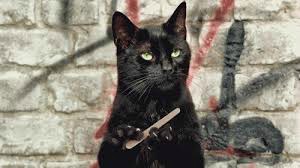 |
Learn English Locally, Apply It Worldwide! Enjoy Regular Practice |
Adjectives as Modifiers
What do we actually mean when we say ‘modify’? How exactly do we use adjectives as modifiers? In our last lesson we defined the adjective as being “a part of speech which modifies a noun or a pronoun, in a positive, comparative or superlative way”.
The process whereby a modifier modifies another word is called modification. It sounds simple and … it is! However, all the various types of modification make this topic very complex and a writer should be very versatile in using this process, as this is what actually adds the magic in a written piece – this is what keeps the reader alert and wanting to read more. If it wasn’t for this craft, people wouldn’t prefer one author to another and one student wouldn’t get better marks in composition than another one at the same level.
On the whole and put simply, modification is a combination of words in which one of them is linked to another one, like a noun with an adjective, with the purpose of either describing or qualifying that noun more precisely.
If the noun is the element the writing is about, then this is called the head (or headword) and the accompanying element (an adjective in our case, although we shall see later how we can have many other words performing this function) is called the modifier. So far, so good!
 |
In the phrase “a bored cat”, ‘cat’ is the head (as we’re focusing our attention on ‘cat’) and ‘bored’ is the modifier, since it comes to describe what kind of a cat we’re talking about. ‘Cat’ cannot be the modifier in this phrase, since you
cannot talk about ‘a bored’, you see. |
Most kids learn these syntactic combinations and how they work, before they go to school and can use their own language perfectly well without the grammatical rules they have to learn at school. But when you learn a foreign language, you need to give these little details the necessary attention, until you understand and assimilate them so that you can use them fluently, whether in writing or in speaking.
|
Now, an even more interesting example is this: “a very bored cat”, where ‘bored’ is the head of the adjective phrase ‘very bored’ (modified by ‘very’) and simultaneously the modifier of the noun ‘cat’. The one word 'cat', the bare name, triggers the image in the reader's mind, but qualify it to 'a very bored cat' and your imagination responds only to the qualified meaning. |
 |
We shall not enter any more grammatical details here.
Instead, let’s stay with the relevance of all this for the writer. Let's see the difference between bad writing and good writing and what the good use of adjectives implies.
Examples of mistakes an inexperienced writer makes:
When it comes to the use of adjectives in one’s writing, there’s nothing else that reveals a writer’s skill, or lack of it. A bad writer cannot ‘hear’ when the adjective is contributing to the meaning of a noun or it is, on the contrary, compromising it. The use of more words than are necessary to make a point is called a ‘pleonasm’. It can be used productively, mainly as a rhetorical strategy to emphasize an image or an idea, if the writer is aware of this. If it is used unintentionally, it’s classed as a stylistic fault.
Writing about ‘lovely roses’ and ‘useful utensils’ and of ‘millipedes with countless legs’ are only a few examples.
On reading "All this I saw with my own eyes, and it was the most fearsome sight I ever witnessed." (Michael Chrichton, Eaters of the Dead. Random House, 1976) – you realise that one cannot see with somebody else’s eyes, or hear with somebody else’s ears, nor touch with somebody else’s hands, so it is unnecessary to use these modifiers in the sentence above.
Could you notice this flaw, should it not have been pointed out to you? Can you avoid making this mistake? This is where reviewing your writing and editing it more than once before presenting it to a reader is invaluable.
An example of professional writing you can also achieve:
 |
On the contrary, a fine writer can use adjectives like adornments, jewellery or the leaves on the tree, to enchant your imagination as a reader. A good writer can bring the pictures into exact focus or in other words, (s)he can focus the reader’s eye exactly as (s)he wishes. |
Take for example the following poem by a student:
Bulls in a Mist
The bulls stopped as I passed;
Their terrible geographies rising from presumed fields.
Each bulk slopped
From tent-pole hips to hang, stuffed laundry-bags,
Between the knees. They turned
And followed me, idle as thugs,
Under the obscene vocabulary of their fringes
Their frontal bones
Could demolish tenements, no, could demolish
Any block post or bastion you could imagine.
The target wrinkles of their eyes
Calculated landslides of concrete. Moreover,
They needed handkerchiefs and bibs,
They needed trousers, but they advanced
Splashing dung, their hairy meteors slacks.
Accomplices, they were, of the omnivorous mist
That breathed rank recipes and licked my face;
Gate-crashers who’d knock my picnic
Into a cocked hat; ambassadors who’d mash
My silo of ripe intentions into a trough, I knew my place.
By Jane Wilson
Now, let’s consider but a few adjectives Jane used in this poem: ‘presumed fields’, ‘tent-pole hips’ (note the noun used as adjective here), ‘idle as thugs’ (note how she used the noun to describe the adjective here, by using a simile), ‘omnivorous mist’ and perhaps the best of all – ‘my silo of ripe intentions’ (the use of the double meaning of the adjective ‘ripe’ brings in the facet of irony).
Here you have the utterly individual vision of the scene that succeeds in convincing you that somehow she experienced these moments. It is this convincing vision that creeps in the feeling that the scene is actually familiar to you. That’s a paradox – like in a dream, although you’ve never experienced this scene, yet the words on the page make you feel that you’ve been there, you've seen it and that it's all happening around you.
It is the accomplishment of this dream on a page that is the aim of the art of writing. It is for this purpose that you must use your adjectives to a superb effect, by avoiding crooked meanings and corrupt word combinations, whether ruthless or too weak.
English Corner Weekly E-zine
Packed with knowledge, published on Tuesdays.
Get yours here!
Our Archives:
Our lessons in the names and sounds of letters, short & long vowel sounds, CVCs, CCVCs, CVCCs, sight words, vowel and consonant contrasts, etc.
Our lessons will help increase your vocabulary, word recognition, find meaning in context, skills for TOEFL tests and other games, for fun.
Here we shall build some lessons to help you improve your writing skills.
Lots of lessons: cause & effect, comparisons, linking signals, relative clauses, presenting information, expressing emotions and grammar games, of course. We had more lessons on: intensifying adverbs and phrasal verbs, expressing various concepts such as addition, exception, restriction and ambiguity. Lately we started some exercises: likes/dislikes, frequency adverbs (twice), verb tenses, etc.
Learn how to build a website, by using the SBI! system - start from the basics, developing a site concept and a niche, supply and demand, learn about profitability and monetization, payment processing, register domain, website structure and content as a pyramid. Also learn about the tools I'm using to build this website. We also covered how to build traffic, working with search engines, building a good system of inbound links, using social marketing and blogs with the SBI system, how to use Socialize It and Form Build It, how to publish an e-zine and how to build a social network in your niche.
We looked at a few games by now: Countable & uncountable nouns, Free Rice, Name That Thing, Spell It, Spelloween, the Phrasal Verbs Game, Preposition Desert, The Sentence Game, Word Confusion, Word Wangling, Buzzing Bees, and The Verb Viper Game.
Be prepared to play and learn more pretty soon.
